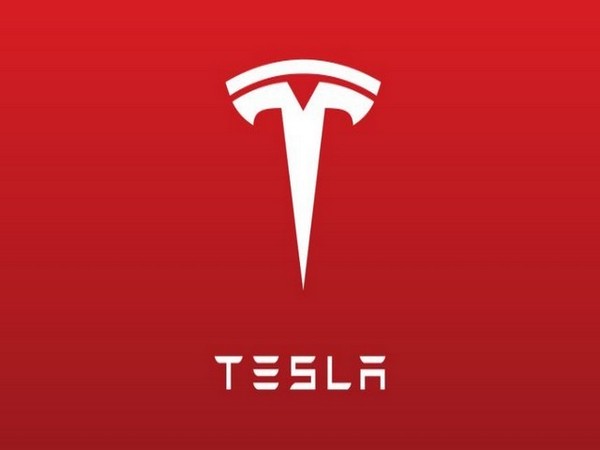Science News Roundup: Tesla to host second artificial intelligence day in August; Pollution killing 9 million people a year, Africa hardest hit - study and more
Air pollution from industry processes along with urbanization drove a 7% increase in pollution-related deaths from 2015 to 2019, according to the scientists’ analysis of data on global mortality and pollution levels. U.S. officials say Pentagon committed to understanding UFO origins Two senior U.S. defense intelligence officials said on Tuesday the Pentagon is committed to determining the origins of what it calls "unidentified aerial phenomena" - commonly termed UFOs - but acknowledged many remain beyond the government's ability to explain.

Following is a summary of current science news briefs.
Tesla to host second artificial intelligence day in August
Tesla Inc top boss Elon Musk said on Tuesday the electric-car maker will host its second artificial intelligence day on Aug. 19, with the company likely to expand on plans to fine-tune its self-driving technology. "The purpose of AI Day is to convince great AI/software/chip talent to join Tesla," the billionaire said in a tweet.
Pollution killing 9 million people a year, Africa hardest hit - study
Worsening outdoor air pollution and toxic lead poisoning have kept global deaths from environmental contamination at an estimated 9 million per year since 2015 – countering modest progress made in tackling pollution elsewhere, a team of scientists reported Tuesday. Air pollution from industrial processes along with urbanization drove a 7% increase in pollution-related deaths from 2015 to 2019, according to the scientists’ analysis of data on global mortality and pollution levels.
U.S. officials say Pentagon committed to understanding UFO origins
Two senior U.S. defense intelligence officials said on Tuesday the Pentagon is committed to determining the origins of what it calls "unidentified aerial phenomena" - commonly termed UFOs - but acknowledged many remain beyond the government's ability to explain. The two officials, Ronald Moultrie and Scott Bray, appeared before a House of Representatives intelligence subcommittee for the first public U.S. congressional hearing on the subject in a half-century. It came 11 months after a government report documented more than 140 cases of unidentified aerial phenomena, or UAPs, that U.S. military pilots had observed since 2004.
Bezos' Blue Origin delays 5th crewed flight
Jeff Bezos' space tourism venture Blue Origin delayed its fifth crewed launch that was scheduled for Friday as one of the New Shepard rocket's backup systems did not meet expectations. Blue Origin's fourth flight landed successfully in March in west Texas after taking six passengers for a 10-minute journey to the edge of space.
Prehistoric fossil in Peru sheds light on marine origin of crocodiles
The discovery of a prehistoric crocodile fossil in Peru from around 7 million years ago has given paleontologists more clues as to how modern crocodiles, all freshwater creatures in the Andean country, first came to land from the sea. According to a Peruvian research team that analyzed jaw and skull remains of the species, the animal likely would have probably crossed the Atlantic Ocean to the coast of South America, eventually populating what is now southern Peru.
Tooth from Laotian cave sheds light on enigmatic extinct humans
A young girl's tooth excavated from a cave wall in northeastern Laos is providing new insight into the mysterious extinct human species called Denisovans and revealing their resourcefulness in adapting to both tropical and chilly climes. The tooth is one of the few physical remains known of Denisovans, a sister lineage to Neanderthals who until now had been known only from scrappy dental and bone fossils from a single site in Siberia and one in the Himalayas.
NASA set for Boeing's Starliner uncrewed space capsule test
NASA astronauts and officials on Wednesday said Boeing Co's Starliner space capsule is ready for its uncrewed launch this week to the International Space Station, a long-delayed test mission meant to demonstrate the aerospace giant can safely fly humans in space. Boeing's CST-100 Starliner capsule, a gumdrop-shaped astronaut pod, has experienced multiple setbacks in recent years. Software failures in 2019 nixed its debut attempt to dock at the space station. Fuel valve issues last year added nine months of further delays.
ALSO READ
Jeff Bezos' Blue Origin launches fiancee Lauren Sanchez and all-female space crew including Katy Perry and Gayle King, reports AP.
Katy Perry and Crew Set for Pioneering All-Female Spaceflight with Blue Origin
Blue Origin's All-Female Spaceflight: A Milestone in Space Tourism
Katy Perry Blasts Off with All-Female Blue Origin Crew
Nikki Glaser Keeps Comedy Grounded Amid Blue Origin Space Flight Controversy










